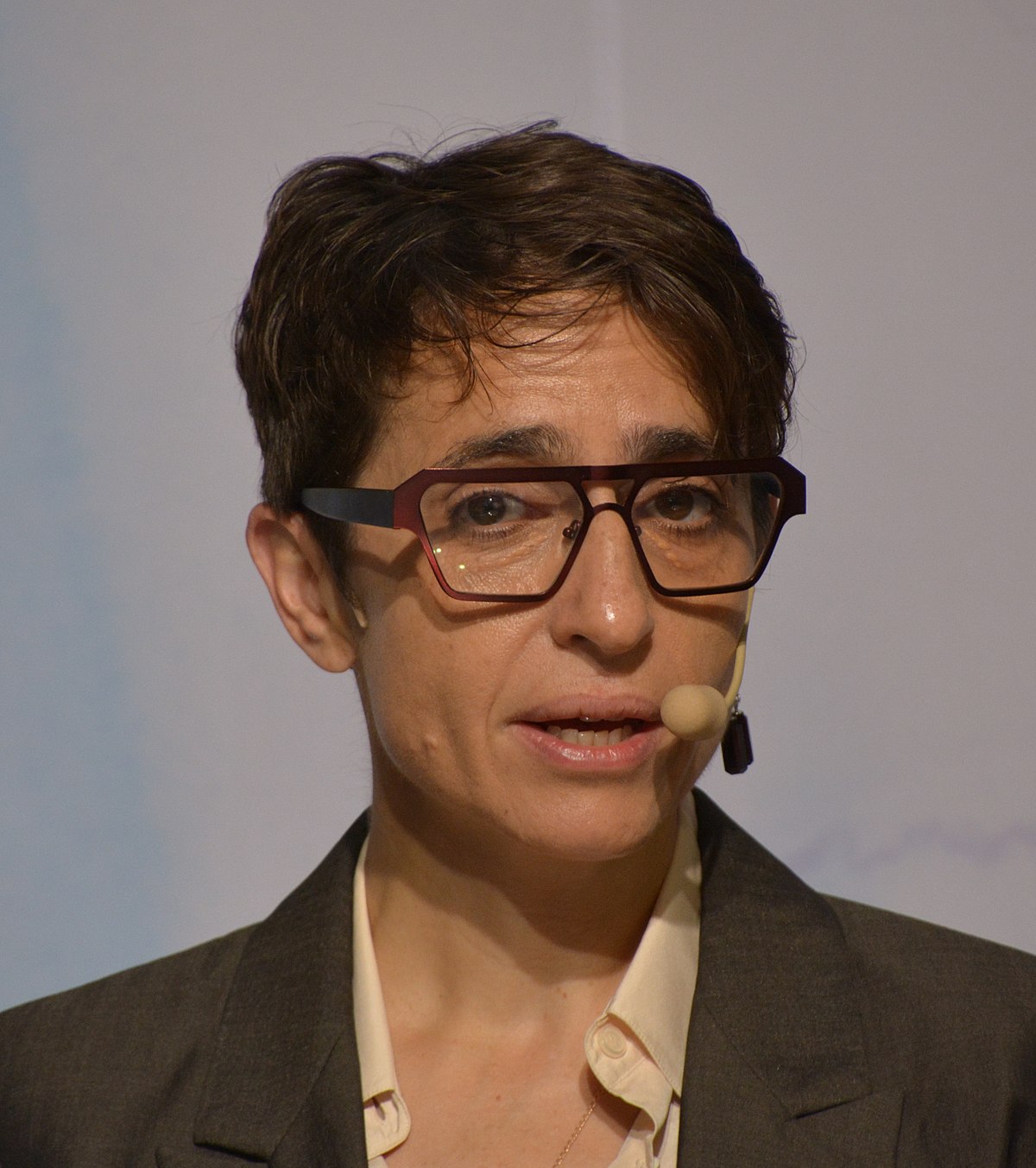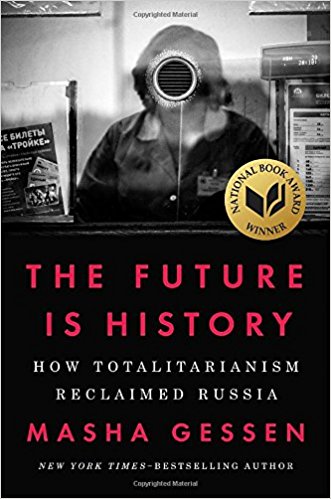The Future Is History Summary
6 min read ⌚
 How Totalitarianism Reclaimed Russia
How Totalitarianism Reclaimed Russia
Is the Russian Federation genuinely leaning towards democracy or are we witnessing yet another dictator shooting for the stars?
Stay tuned, for more!
Who Should Read “The Future Is History”? And Why?
Perhaps, this book won’t seem too appealing for those who have no interest in politics whatsoever. Nevertheless, we believe that “The Future is History” is suitable for all people who criticize dictatorship and abuse of human rights.
The ball is on your court, now!

About Masha Gessen
Masha Gessen is a Russian-American author, LGBT activist and loud critic of both Putin and Trump’s policies and agendas.
She is married to Svetlana Generalova.
“The Future Is History PDF Summary”
This book casts doubt on the future of Russian Democracy and provides a lot of topics that are yet to be discussed. Masha focuses on events since the early 80s and pays exclusive attention to Putin’s never-ending reign as the President of the Russian Federation.
The dissolution of the Soviet Union came at a high cost, and many people living within the borders of the communist regime, found themselves stranded in another country. Yeltsin democratic reforms were not well-received by the vast majority in 1993.
The people protested and even assaulted his residence, trying to overthrow the democratic government and reestablish the one-party communist leadership once more. The Chechen wars added fuel to the fire, which surprisingly speeded up Putin’s rise in political terms.
After Nemtsov’s assassination, many political figures naturally were inclined to agree with the new dictatorship, which exists beneath the curtain of liberal democracy. The author turns a few heads due to the focus place on three intellectuals born in the Soviet Era.
The story of a student, Lev Gudkov – born in Soviet Russia starts with the idea of becoming a journalist. Lectured by one of greatest sociologists in the SSSR Yuri Levada, his path leads to Levada Center where he conducts various surveys.
At the time, no attention is fixated on sociology, and the imminent collapse of communism in the Soviet Union opens up the doors for this new discipline.
You won’t be surprised to hear that in a one-party state, surveys investigating the public’s opinion on a specific topic are not allowed.
In fact, you would be branded traitor, and receive fate worse than death. Gudkov decided to create such survey and turn a new leaf in the country’s state regulative.
In the beginning, he encountered various issues, and yet the only thing he wanted to do is inquire about Soviet’s economic success for the 70+ years of rule.
There was a game called “Work.” and on of the most-often-repeated Soviet jokes described it perfectly: “We pretend to work, and they pretend to pay us
Levada center came to an understanding that the mind of the Soviets was forced into embracing a cult of the unmistakable communist hand. At first, Gudkov reckoned that this authoritative-loving figure is in decline, but time showed otherwise.
For instance, with the dissolution of the Soviet Union, people’s aversiveness towards homosexuality began to drop. What came as a shock was when Putin came to power, the homo-sovieticus was up and running. The respondents no longer craved freedom, nor they were leaning towards the Western lifestyle.
Russian culture yet again, chose to stay side-by-side with a leader whose powers are unlimited – although on paper it serves a tenure of 6 years.
Western Politicians, including the European Union, accused the Russian Government of rigged election and choosing political rivals that have literally no chance of winning.
Marina Arutyunyan, a psychologist, also born before the collapse of the vast empire, faced same gaps and misunderstandings. Being a psychologist in a country where everyone must hold onto a well-defined behavior and follow a set of rules, is not a straightforward task.
Same as Gudkov, the fall of the communist regime, gave her freedom to conduct psychoanalytical tests, which had been suppressed for over seven decades.
She dug deep into learning more about the Western methods of human psychology, something that an ordinary Russian had never encountered.
Alexander Yakovlev argued that four generations of Soviets living under the dictatorship of the Soviet Cult were traumatized and brainwashed.
Once he opened the K.G.B archives, he found out that Stalin was using death warrants as a play toy. When Putin became president, all these files were closed again.
He was reluctant to adjust to the western practices and preferred merely for the Russian society to face the facts, and deal with its painful history.
Arutyunyan’s grandfather ended up in the Gulags, because of his unwillingness to sign a false confession and denounce the ones he loved.
Gessen still questions Russia’s governing policies. According to the Western World, Putin is yet another dictator of the Soviet Era. They believe that totalitarianism is still present and as a regime, it controls all the nation’s resources.
Before the revolution in 1917, the Russian society was mainly agricultural. After the industrialization and the purges, the only thing that was powerful enough to secure the existence of the state was ideology.
The intellectuals, the workers, and the peasants were all part of the same hypocrisy to keep this one-party leadership in power.
Hannah Arendt wrote that ideology was nothing but a single idea taken to its logical extreme. No ideology was inherently totalitarian but any ideology contained the seeds of totalitarianism—it could become encapsulated, entirely divorced from reality, with a single premise eclipsing the entire world. Totalitarian leaders, she wrote, were interested less in the idea itself than in its use as the driver and justification of action. They derived the “laws of history” from the single chosen idea and then mobilized the people to fulfill these imaginary laws
Dugin’s methods and fascist bolshevism are useful for establishing strong political ties, within the new state. What the future has in store no one knows, but Masha hopes it will be something way better than a glimpse of the past.
Key Lessons from “The Future Is History”
1. Democracy is put on hold
2. Russia has a long road ahead of itself
3. Strong political ties are vital
Democracy is put on hold
A centralized economy with no accent on the individual contribution, place The Russian Federation somewhere on the bottom of democracy instilled on a state level.
Gessen doubts Putin’s intentions to enforce reforms and change the law practices, because presently, Russia lacks liberal revolution.
Russia has a long road ahead of itself
All the people living in the Russian Federation demand an instant change for the better. The cry for a better life is yet to be heard.
To stimulate the economy, the government officials must devise plans to encourage self-employment, which entirely opposes the core of the previous regime.
Strong political ties are vital
To get a firm grip on power, one must have excellent connections with the business community and other party bosses. Government links heavily rely on mutual interest, something that Putin exploited to the limit.
Like this summary? We’d Like to invite you to download our free 12 min app, for more amazing summaries and audiobooks.
“The Future Is History Quotes”
The Soviet regime robbed people not only of their ability to live freely but also of the ability to understand fully what had been taken from them, and how. Share on X A state born of protest against inequality had created one of the most intricate and rigid systems of privilege that the world had ever seen. Share on X They are just doing their jobs,” said Putin, meaning that protesters were working for money—state television channels had by this time aired a series of reports claiming that the protests were bankrolled by the U.S. State Department. Share on X The Soviet Union’s growing nationalist conservatism based on the glorification of some imaginary peasant class’s traditional values. Share on X Science gradually yielded to propaganda, and as a result propaganda tended more and more to represent itself as science. Share on XOur Critical Review
Well, if you are a fan of Putin, you are not going to like this book. On the other hand, it provides a sincere overview of the life under the undisputable communist leadership.
It’s fair to say that this book is enriched with various facts and events that really took place.
Emir is the Head of Marketing at 12min. In his spare time, he loves to meditate and play soccer.


 How Totalitarianism Reclaimed Russia
How Totalitarianism Reclaimed Russia




